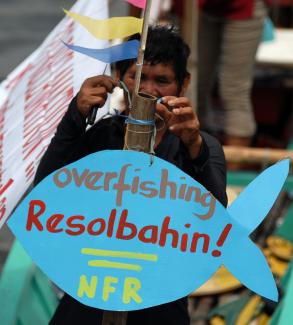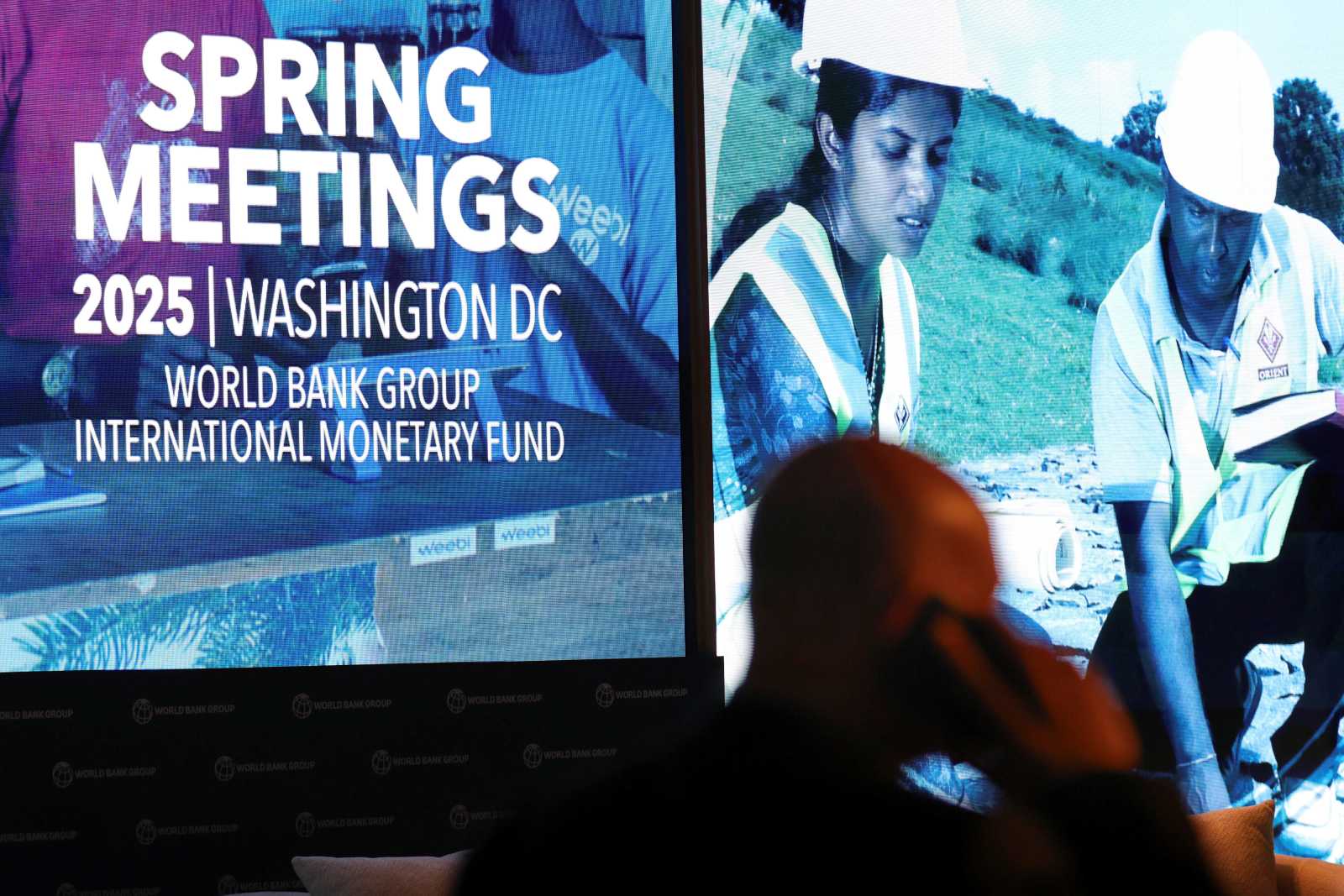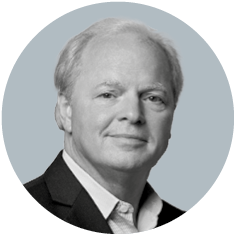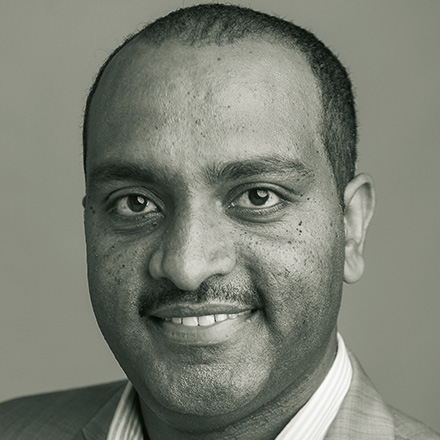World agenda
People’s goals

Humanity is confronted with unprecedented challenges today, including climate change and environmental degradation, poverty and inequality, food and energy insecurity, financial and economic crises. One aspect of globalisation is that individual nations cannot adequately address these issues. Our increasingly interconnected world needs new forms of international cooperation that transcend borders and narrowly-defined institutional mandates.
At the same time, global governance must become more democratic. International processes for decision-making are disconnected from the people they affect most. The influence of developing countries in these settings has grown in recent years, but this trend has not necessarily benefited the marginalised and excluded people of the Global South. Intergovernmental consensus building is often hampered by what is called “national interests”, but really is about the competitiveness of any given country’s businesses and industries.
Civil-society organisations can serve as a progressive, democratising force in global governance, if they are involved in meaningful ways. They express diverse values and perspectives, and they build on experience and expertise drawn from working with various communities and constituencies. CSOs typically draw attention to issues that technocrats and government leaders tend to avoid or neglect because they seem too “political” or “unmanageable”. Human rights, inequality and conflicts are among those issues. On the other hand, most CSOs are not obsessed with supposed “national” interests. They are directly accountable to their members and constituents.
Marginalised voices
The sad truth, however, is that civil society tends to remain marginalised in global decision making. This is especially true of CSOs from the Global South. Numerous barriers restrain their role, including lack of resources and staff. Many CSOs in Africa, Asian and Latin America have neither the money, nor the expertise, nor the qualified staff they would need for effective multilateral lobbying.
Things are made worse by the fact that the UN is not doing enough to facilitate civil-society participation in global governance. Such participation is not even formally recognised. CSOs from developing countries typically do not get any financial support for participation purposes. Moreover, access to information (about agreement drafts for instance) remains restricted.
The Earth Summit in Rio de Janeiro in 1992 made a difference in this regard. CSOs were active participants – and this is also true of the negotiations that take place in the context of the conventions passed in Rio. They include the UN Framework Convention on Climate Change, the UN Convention on Biodiversity and others. The Rio+20 Summit that took stock of the results last summer, however, proved that humankind is not on a sustainable-development path two decades after the Earth Summit. That CSOs’ influence remains quite limited is one of the reasons (see box).
Reasons for reluctance
Neither the Rio process nor the Millennium Development Goals have led to satisfying results so far. Accordingly, the debate on the post-Rio/post-2015 development agenda presents new opportunities for advocating a rights-based approach to sustainable development. We at IBON International encouraged our allied CSOs to get involved in this process from the onset.
For three reasons, however, many of them were reluctant to engage. The reasons are lack of information, lack of relevance and lack of optimism.
- The UN hardly managed to reach out beyond the developmental non-governmental organisations already engaged in advocacy or monitoring even though it made enormous efforts to conduct conferences, consultations and online conversations. The idea was to solicit people’s inputs into the post-2015 development agenda. However, many events were organised in haste, trying to beat the UN calendar. Public debate should have been promoted in village assemblies and real town hall meetings, allowing ideas to percolate from below. So even as the global consultations are winding down, many grassroots organisations still are not aware of what the “post-2015 development agenda” is really about.
- Many other groups are informed, but question the relevance of the post-2015 debate. Their stance is rooted in the fact that the MDGs neglected many pressing issues such as employment and decent work, inequality – within and between countries – and global economic relations. Moreover, the MDGs only paid lip service to the issues of climate change and environmental sustainability. Accordingly, many CSO activists believe that the post-2015 agenda will not tackle these important challenges either. Others view the entire goal-setting exercise with suspicion, arguing that such an approach fails to see development as the comprehensive social transformation humanity needs. They consider the MDGs a technocratic approach that emphasises aid and technical solutions instead of redressing the inequalities in wealth and power that are at the root of poverty and underdevelopment.
- Finally, many CSOs remain deeply sceptical of the UN. They simply do not believe the multilateral system will achieve much. It does not help that the MDGs were formulated through a non-inclusive process by a handful of experts and bureaucrats. There was no participation from poor countries or civil society. It is more important, however, that the rich nations consistently fail to live up to their duties. They did not raise official development assistance as they promised. They did not curb greenhouse gas emissions as they pledged in the Kyoto protocol. The WTO’s Doha Development Round is dead because rich nations never seriously engaged in the negotiations. Instead they insisted on bilateral talks on issues that were excluded from the agenda in Doha, such as public procurement and competition law.
Nonetheless, IBON remains convinced that sustainable development is the great challenge of our time. The issue is too important to be left to governments. So we approached it from the other end. We began by discussing what grassroots groups and social movements are already working on. And we tried to express these as specific demands that can be brought to the discussions on the post-2015 framework.
Moving forward
In October 2012 we held an international workshop in Nairobi. The participants were 25 leaders from grassroots organisations and social movements. They discussed the lessons from the MDGs and the Rio process, agreeing that it does not make sense to tackle poverty and environmental challenges in separate agendas.
The workshop assessed the challenges for a truly transformative development framework. On this basis, a joint statement on “People’s goals” was passed. Its ten priority themes are:
- respect, protect and fulfil human rights,
- eradicate the roots of poverty, inequality and exclusion,
- respect planetary boundaries, climate justice and environmental sustainability,
- ensure full employment and decent livelihoods for all,
- guarantee adequate social protection for all,
- uphold gender justice,
- uphold peoples sovereignty over food systems,
- establish a fair and just international economic architecture,
- ensure peace and security based on justice, and
- uphold democratic governance.
Thus was born the Campaign for People’s Goals for Sustainable Development. The Campaign serves as a platform to challenge governments and the multilateral system to address people’s demands and commit to real reforms. The Campaign helps to link the struggles of people’s organisations across the national boundaries, to combine considerations in a cross-sectoral manner to connect struggles at the local and the global levels. The Campaign is an opportunity to work collectively to advance the people’s causes.
Since its inception, the Campaign has further elaborated its common position, embedding it into the formal processes of the UN consultations as well as promoting it in strategic civil-society venues. The Campaign is now recognised as one of the leading civil-society voices from the Global South. But the barriers on the road to a more inclusive post-2015 development agenda remain. The intergovernmental process of “consensus-building” for a post-2015 development framework is just beginning.
To promote democratisation, effectiveness and legitimacy of governance for sustainable development, governments and multilateral institutions should ensure:
- more dedicated spaces and means for dialogue and consensus-building involving civil society as equal stakeholders;
- greater capacity development for grassroots groups, social movements and civil society networks from the Global South to engage in global policy-making and norm-setting arenas; and
- adequate resources for these initiatives.
Paul Quintos works for IBON International, a Manila-based civil-society organisation with global reach.
pquintos@iboninternational.org














